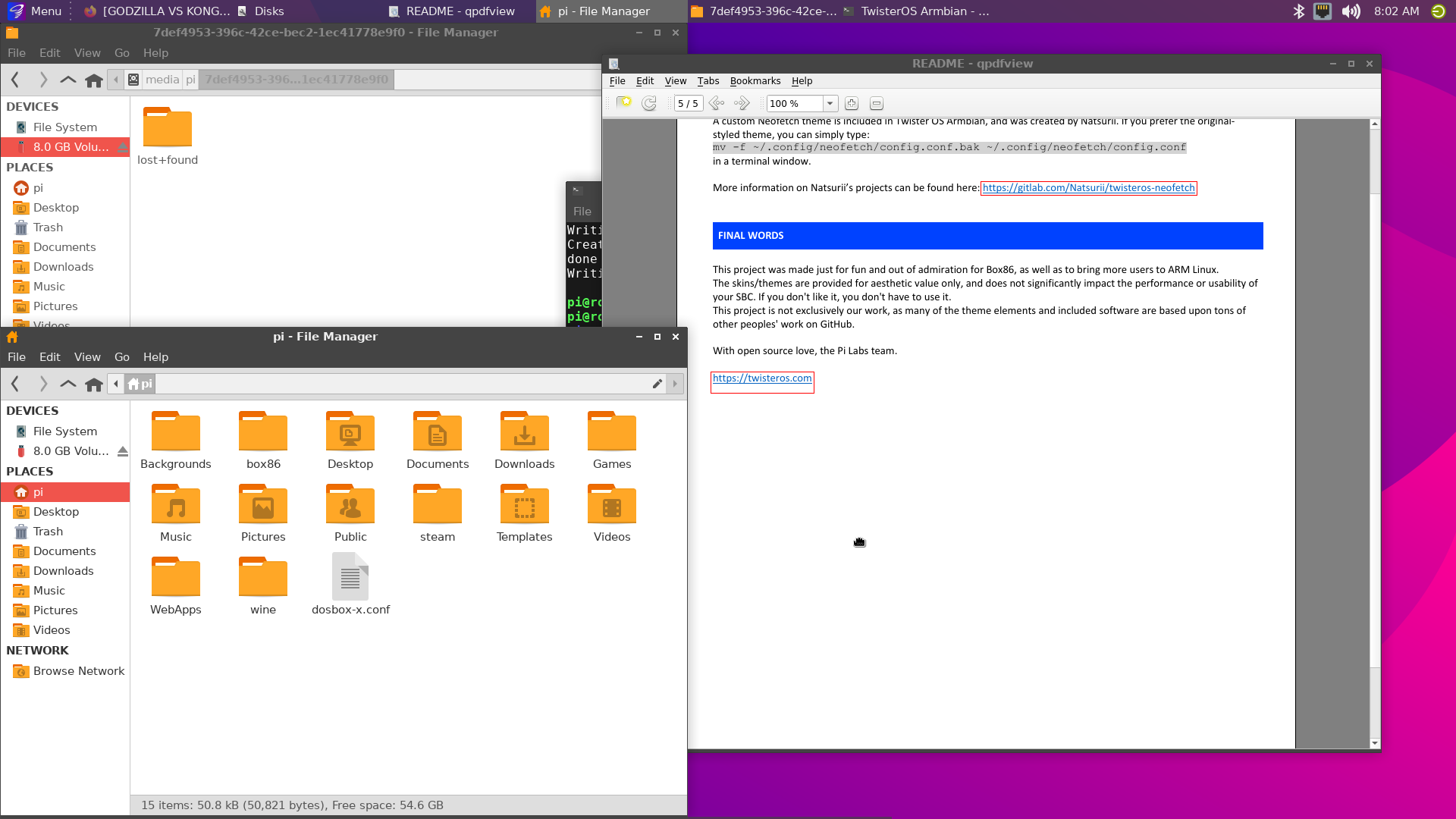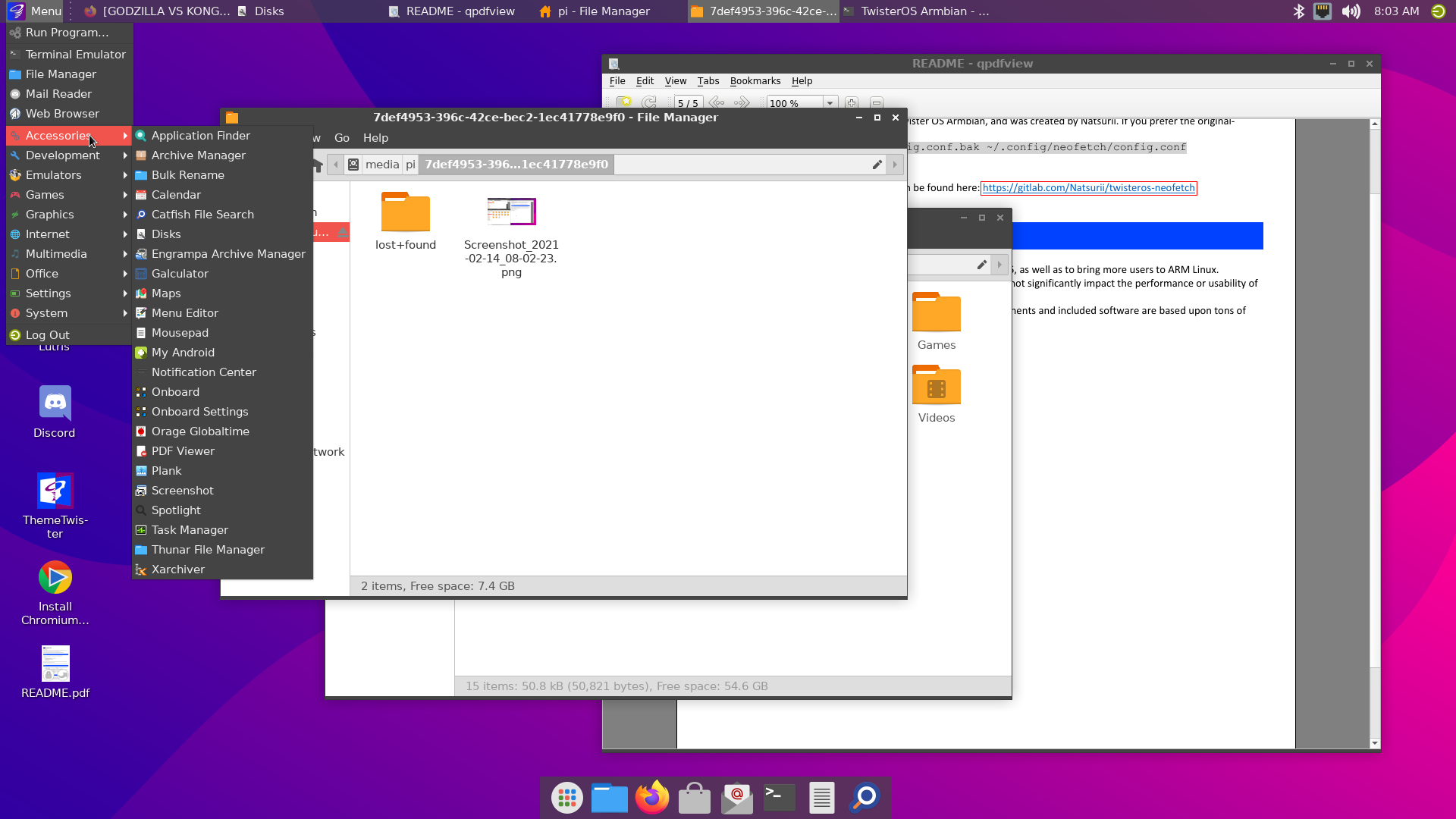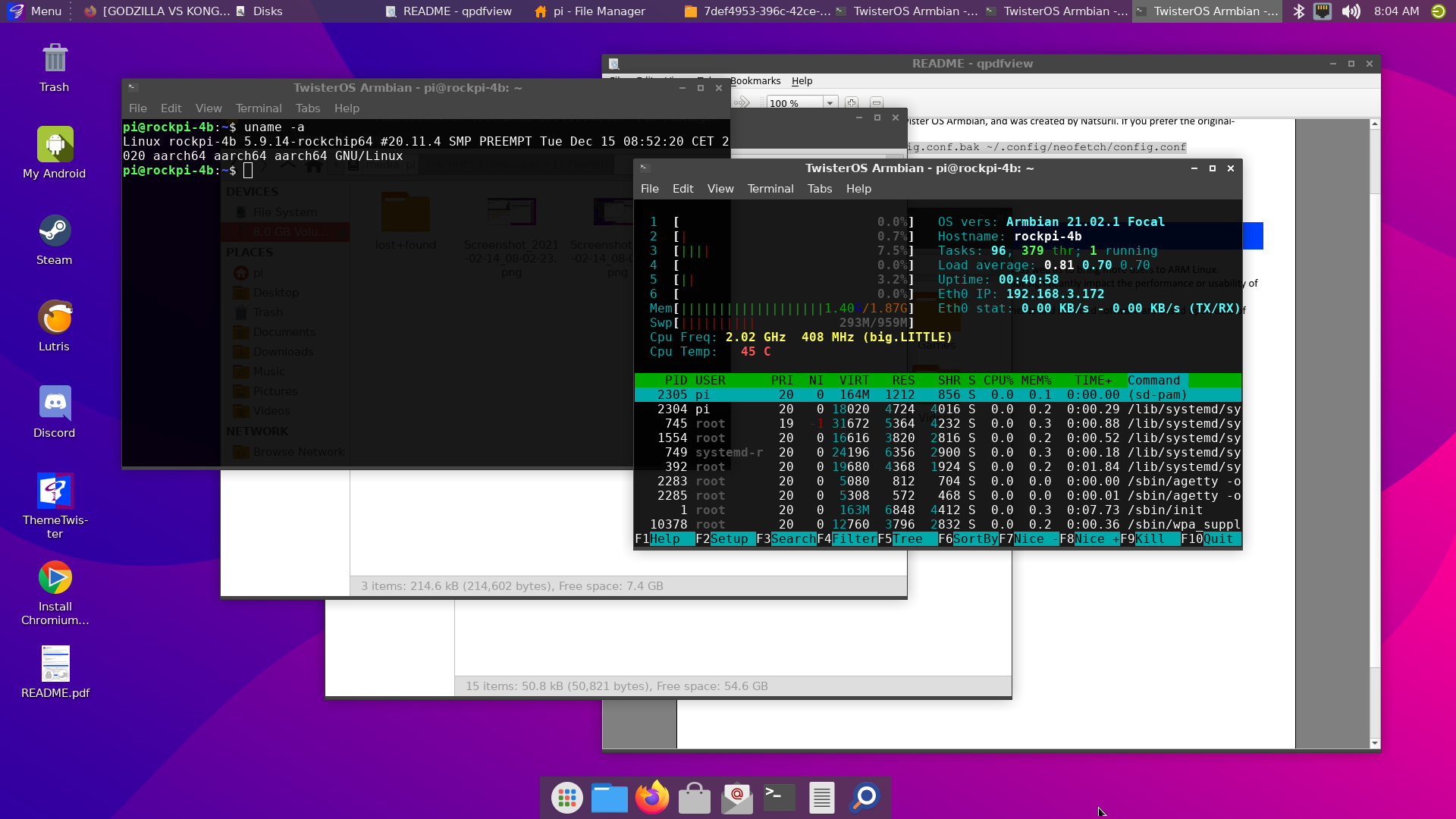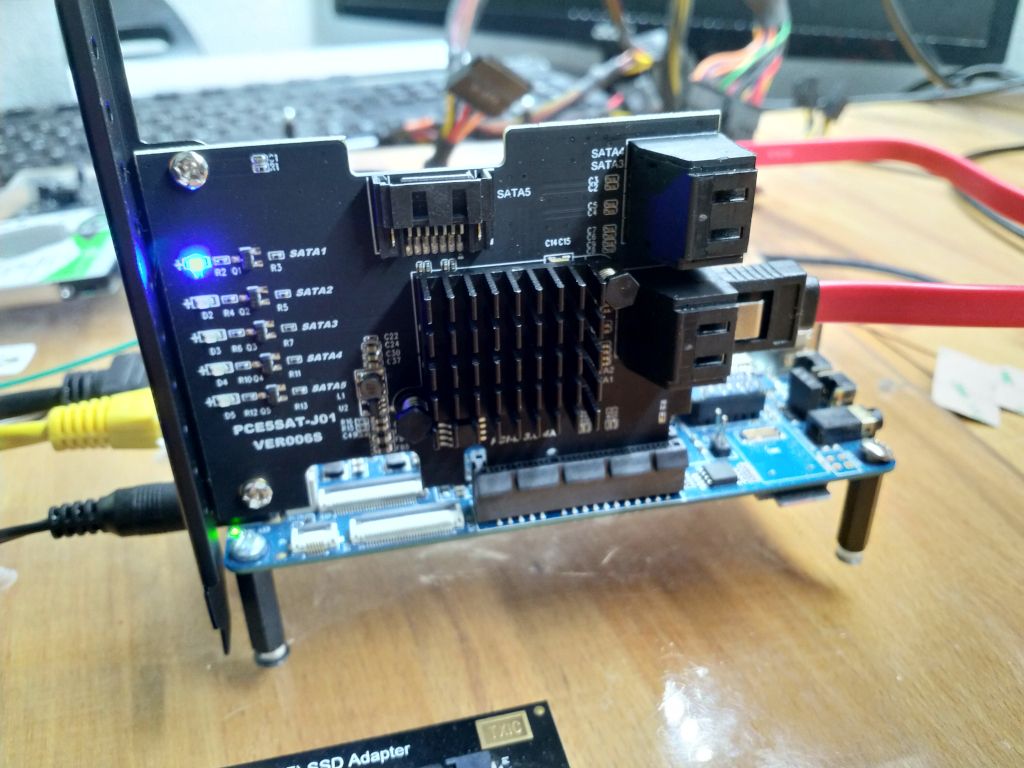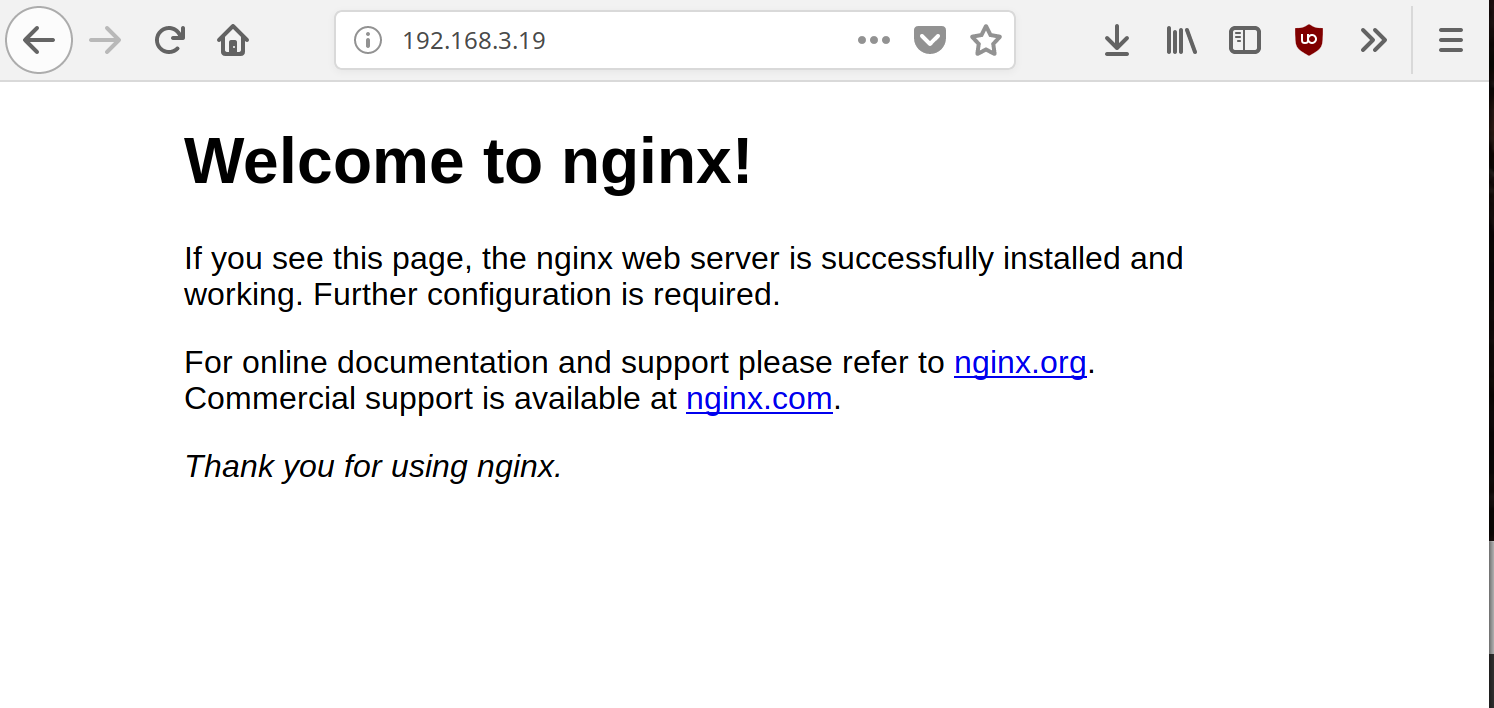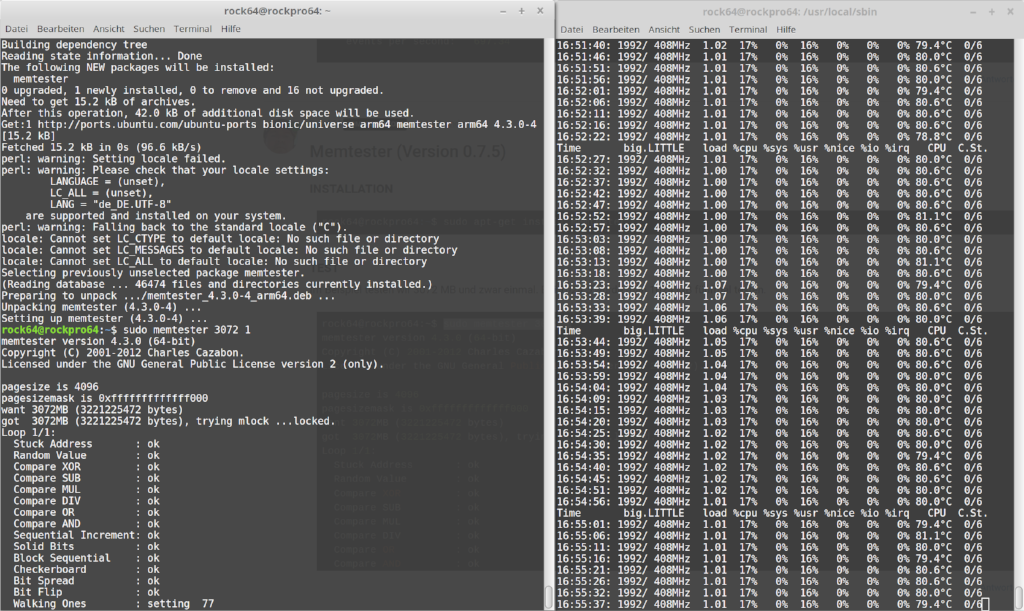TwisterOS
Images
1
Beiträge
1
Kommentatoren
301
Aufrufe
-
schrieb am 14. Feb. 2021, 14:13 zuletzt editiert von FrankM
Vor ein paar Tagen, bin ich im Pine64 Forum über ein neues Image gestolpert. Es nennt sich TwisterOS und basiert auf einem Armbian Focal Image. Als Oberfläche wird der Xfce Desktop benutzt.
Wie viele wissen, nutze ich den ROCKPro64 eigentlich nur als Headless Server, aber von Zeit zu Zeit schaue ich auch gerne mal was sich so getan hat. Dieses OS hat ein paar interessante Eigenschaften.
- Latest Panfrost GPU drivers with desktop hardware acceleration
- OpenGL 3.1 is also supported with fully updated Mesa 21.1.0
- Kodi and MPV media players with built-in hardware acceleration support
Das sollte einen Desktop versprechen, der endlich mal flüssig läuft. Ein paar kurze Tests von mir zeigt das zu bestätigen.
Ich denke, wer gerne einen Desktop mit dem ROCKPro64 nutzen möchte, hat mit diesem OS endlich mal was, wo sich die Zeit lohnt

Zum Schluss ein paar Screenshots
